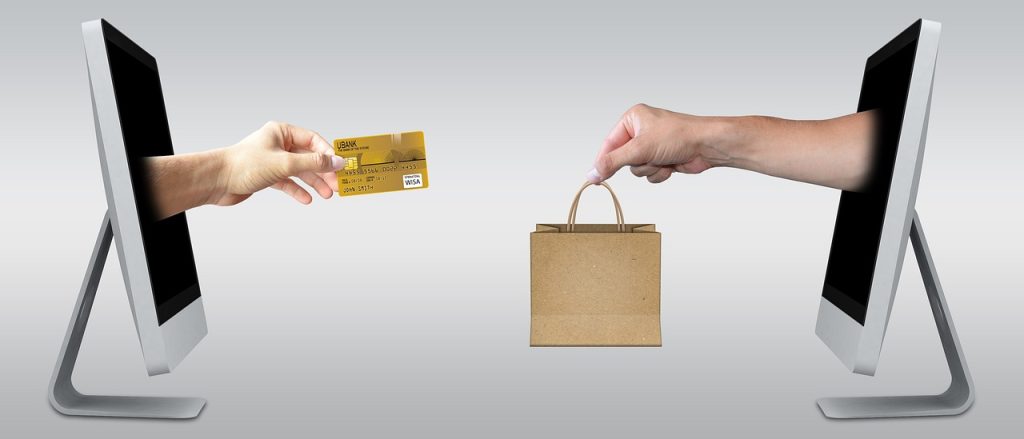So, you’re considering selling some items online and you’re wondering which platforms would be the best fit for you. With the myriad of options available, it’s easy to get overwhelmed. Luckily, we’ve done the research for you and in this article, we’ll explore the top platforms for selling your products. Whether you’re a seasoned business owner or just starting out, we’ve got you covered. Let’s dive in and find the perfect platform to showcase your goods and boost your sales!

This image is property of pixabay.com.
1. E-commerce platforms
If you’re looking to sell products online, e-commerce platforms are a great place to start. These platforms provide you with everything you need to set up and manage an online store. Let’s take a look at some popular e-commerce platforms:
1.1 Amazon
Amazon is one of the largest e-commerce platforms in the world, making it an attractive choice for sellers. With millions of customers and a wide range of product categories, you can reach a diverse audience. Amazon offers various selling plans, including individual and professional accounts, giving you flexibility based on your business needs.
1.2 eBay
eBay has been a leading online marketplace for many years, providing sellers with a platform to list and sell a wide variety of products. One of the advantages of eBay is its auction-style selling format, which can create excitement and competition among buyers. Additionally, eBay offers various listing options and promotional tools to help sellers maximize their sales.
1.3 Shopify
Shopify is a popular e-commerce platform that allows you to build your own online store from scratch. It offers a user-friendly interface and a wide range of customizable themes and apps to create a unique online presence. Shopify also provides features like secure payment gateways and inventory management, making it a comprehensive solution for entrepreneurs.
1.4 WooCommerce
WooCommerce is a plugin for WordPress that enables you to turn your website into a fully functional online store. It offers a seamless integration with WordPress and gives you full control over your store’s design and functionality. With its vast selection of extensions, you can add features like payment gateways, shipping options, and more.
1.5 Etsy
Etsy is a niche-specific e-commerce platform that focuses on handmade, vintage, and unique products. If you sell handmade crafts, vintage items, or custom creations, Etsy can be a great platform to connect with a community of like-minded buyers. Etsy also offers seller tools and resources to help you showcase and promote your products effectively.
2. Social media platforms
In today’s digital age, social media platforms have become powerful tools for promoting and selling products. Leveraging the vast user bases of these platforms, you can reach a wide audience and engage with potential customers. Here are some popular social media platforms for selling:
2.1 Facebook
Facebook is the largest social media platform worldwide, making it a prime choice for selling products. You can create a business page or use Facebook Marketplace to list your products directly. Facebook also provides features like targeted advertising, messenger chatbots, and insights to help you optimize your selling strategies.
2.2 Instagram
Instagram’s visual nature makes it perfect for showcasing your products in a visually appealing way. By creating a business account, you can utilize features like shoppable posts and stories to direct your followers to your online store. Instagram also offers advertising options and influencer collaborations to expand your reach and increase sales.
2.3 Pinterest
Pinterest is known for its inspiring and visually-driven content, making it an ideal platform for businesses in the design, fashion, and home decor industries. By creating compelling and engaging pins, you can drive traffic to your website or online store. Pinterest also provides analytics and advertising options to help you measure and boost your sales.
3. Peer-to-peer platforms
If you want to sell items directly to other individuals, peer-to-peer platforms can be a convenient option. These platforms connect buyers and sellers within a local or national area. Here are some popular peer-to-peer platforms for selling:
3.1 Craigslist
Craigslist is a well-established platform that allows you to list and sell a wide range of products within your local area. It’s a popular choice for selling used items, finding local services, or even promoting your business. With its simple interface and various categories, Craigslist provides a straightforward way to connect with potential buyers.
3.2 Letgo
Letgo is a mobile app that focuses on local buying and selling. Its user-friendly interface and geolocation feature enable you to easily list and search for items within your vicinity. Letgo also offers chat functionality, making it easy to communicate with potential buyers and negotiate deals.
3.3 OfferUp
Similar to Letgo, OfferUp is a mobile app that connects local buyers and sellers. It allows you to list items, chat with interested buyers, and arrange meetups for transactions. OfferUp also provides user ratings and reviews, creating a sense of trust and credibility within the platform.
4. Niche-specific platforms
If you have niche products or cater to a specific market, niche-specific platforms can help you showcase your offerings to a targeted audience. Here are a few examples of niche-specific platforms:
4.1 Houzz
Houzz is a platform dedicated to home improvement, design, and remodeling. If you sell products related to interior design, furniture, or home decor, Houzz can be a valuable platform to reach homeowners and design enthusiasts. Houzz offers features like product catalogs, integrated purchasing, and an active community for inspiration and engagement.
4.2 Houfy
Houfy is another niche platform that focuses on vacation rentals and property sales. If you are a vacation rental owner or real estate agent, Houfy provides a platform to list, manage, and promote your properties. With its built-in booking system and communication tools, Houfy streamlines the rental process and connects you directly with potential guests.
4.3 Reverb
Reverb is a platform specifically designed for buying and selling musical instruments and gear. Whether you are a musician or a music equipment retailer, Reverb offers a dedicated marketplace to showcase your products to a targeted audience. With its extensive categorization and search filters, Reverb makes it easy for users to discover the perfect instrument or accessory.

This image is property of pixabay.com.
5. Local marketplaces
If you prefer selling within your local community, local marketplaces can be an effective way to connect with nearby buyers. These platforms often have a strong focus on facilitating local transactions. Here are some popular local marketplaces:
5.1 Craigslist
As mentioned earlier, Craigslist is a versatile platform that allows you to buy and sell products within your local area. Its wide user base and extensive categories make it a go-to platform for local transactions. Whether you’re selling furniture, electronics, or offering services, Craigslist can help you find interested buyers nearby.
5.2 Facebook Marketplace
Facebook Marketplace is another platform that offers local buying and selling opportunities. Integrated into the Facebook platform, it allows you to list products, set prices, and communicate with potential buyers easily. Facebook Marketplace also provides recommendations based on user preferences, helping to increase the visibility of your listings.
5.3 Nextdoor
Nextdoor is a neighborhood-based platform that focuses on connecting communities. Along with sharing information and events, Nextdoor also facilitates local buying and selling. Whether you’re selling household items, organizing a garage sale, or offering services, Nextdoor enables you to target your immediate community and build trust within your neighborhood.
6. Online classifieds
Online classifieds platforms have long been a popular choice for buying and selling a wide variety of products and services. These platforms typically offer categories and subcategories to help users find what they’re looking for. Here are a few examples of online classifieds platforms:
6.1 Gumtree
Gumtree is a widely used classifieds platform that operates in multiple countries. It allows you to list products, services, rentals, jobs, and more. Gumtree provides a straightforward interface and extensive filters to help users find relevant listings. With its active user base, Gumtree can provide good exposure and potential sales opportunities.
6.2 OLX
OLX is a globally recognized classifieds platform that focuses on local buying and selling. It allows users to post free ads in various categories, including vehicles, electronics, real estate, and more. OLX provides a secure messaging system to facilitate communication between buyers and sellers. Its wide user base makes it a popular choice in many countries.
6.3 Kijiji
Kijiji is a Canadian online classifieds platform that offers a wide range of categories for buying and selling. Similar to other classifieds platforms, Kijiji provides a simple interface and search functionality. With its local focus and extensive user base, Kijiji is a popular choice for Canadians looking to buy or sell products and services.

This image is property of pixabay.com.
7. Auction platforms
If you have unique or collectible items, auction platforms can be a great way to attract buyers and maximize your sales. These platforms specialize in auction-style selling, creating a sense of excitement and competition. Here are a few well-known auction platforms:
7.1 Sotheby’s
Sotheby’s is a renowned auction house that has been operating for centuries. It specializes in various categories, including fine art, jewelry, antiques, and collectibles. Sotheby’s offers both online and in-person auctions, providing collectors and sellers with a prestigious marketplace to showcase extraordinary items.
7.2 Christie’s
Christie’s is another internationally recognized auction house that hosts auctions for high-end art, luxury goods, and collectibles. With its global presence and esteemed reputation, Christie’s attracts buyers and sellers from around the world. Christie’s also offers online bidding and various auction formats to accommodate different needs.
7.3 Bonhams
Bonhams is a well-established auction house that covers a wide range of categories, including fine art, jewelry, classic cars, and more. It has a strong focus on expertise and provides detailed assessments and valuations for items. Bonhams conducts auctions worldwide and offers both in-person and online bidding options, ensuring accessibility for sellers and buyers.
8. Comparison shopping engines
Comparison shopping engines allow buyers to compare prices and features across multiple retailers, making it essential for sellers to list their products on these platforms. By providing detailed product information and competitive prices, you can attract potential customers looking for the best deals. Here are a few popular comparison shopping engines:
8.1 Google Shopping
Google Shopping is a powerful platform that showcases products from various online retailers. By creating a Google Merchant Center account and listing your products, you can reach millions of potential customers. Google Shopping offers features like product ratings, promotional offers, and detailed product information, making it a valuable tool for driving sales.
8.2 PriceGrabber
PriceGrabber allows users to compare prices, read reviews, and find the best deals across a wide range of products. By listing your products on PriceGrabber, you can increase visibility and attract price-conscious shoppers. PriceGrabber provides a user-friendly interface and various tools to help sellers optimize their listings and drive conversions.
8.3 Shopzilla
Shopzilla is a popular comparison shopping engine that connects buyers with online retailers. It provides a vast product catalog and detailed product information to assist users in making informed purchasing decisions. By listing your products on Shopzilla, you can tap into its massive user base and potentially increase traffic to your online store.

9. Wholesale platforms
If you’re a supplier or looking to sell products in bulk, wholesale platforms can connect you with potential buyers. These platforms are designed for businesses that specialize in wholesale transactions. Here are a few examples of wholesale platforms:
9.1 Alibaba
Alibaba is one of the world’s largest online marketplaces for wholesale trade. It connects manufacturers, suppliers, and distributors from around the world with buyers looking for wholesale products. Alibaba offers a wide variety of categories and provides tools like trade assurance and logistics services to facilitate secure and efficient transactions.
9.2 Global Sources
Global Sources is a B2B wholesale platform that connects businesses with suppliers and manufacturers. It focuses on various industries, including electronics, fashion, and home products. Global Sources offers features like product certification and verification to ensure quality and reliability. It also hosts trade shows and events to facilitate in-person networking and business opportunities.
9.3 TradeKey
TradeKey is an international B2B marketplace that connects buyers and sellers from different industries. It provides a platform for businesses to showcase their products, negotiate deals, and build long-term partnerships. TradeKey offers a range of membership plans to cater to different business needs and provides features like secure payment options and buyer feedback.
10. Mobile apps
With the increasing use of smartphones, mobile apps have become an essential platform for selling products. These apps provide convenience and accessibility for both sellers and buyers. Here are a few popular mobile apps for selling:
10.1 Depop
Depop is a mobile app that focuses on fashion and unique products. It allows users to create listings, follow sellers, and engage with the community through likes and comments. Depop offers a visually-driven interface and features like in-app payments and shipping labels, making it easy to buy and sell items directly from your phone.
10.2 Mercari
Mercari is a mobile app that enables users to buy and sell a wide variety of products, including fashion, electronics, and home goods. With its user-friendly interface and secure payment system, Mercari provides a convenient platform for local and nationwide transactions. Mercari also offers features like in-app shipping labels and seller protection to ensure a smooth selling experience.
10.3 Letgo
As mentioned earlier, Letgo is a mobile app that focuses on local buying and selling. It allows users to list items, chat with potential buyers, and arrange meetups for transactions. Letgo’s mobile-centric approach and geolocation feature make it easy to connect with nearby buyers and complete local transactions efficiently.
In conclusion, the best platform to sell on depends on various factors such as your products, target audience, and selling goals. Whether you choose an e-commerce platform, social media platform, or niche-specific platform, it’s essential to consider your unique selling proposition and choose the platform(s) that align with your business objectives. By strategically selecting the right platforms, you can maximize your reach, attract the right customers, and ultimately drive sales for your business.

